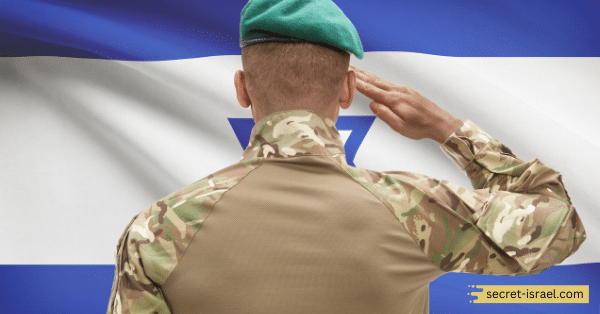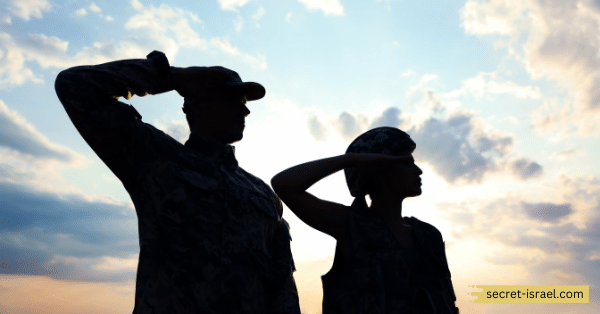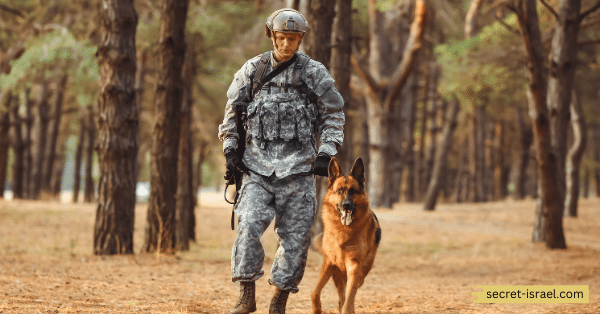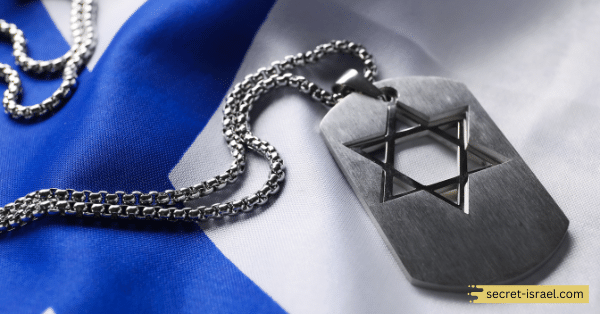Israel’s compulsory military service shapes a resilient and diverse society, with citizens obligated to serve in the IDF from 18. Exemptions exist, but volunteering is common. Benefits include personal growth, education, career opportunities, and a sense of national identity. Challenges include physical and mental stress, separation from family, and adjusting to military life. After service, individuals face new opportunities and challenges, supported by programs. Military service remains a profound journey shaping Israeli lives and national identity.
We invite you to join us on this enlightening journey. Buckle up, folks! It’s time to explore the intricacies of Israel’s military service.
Compulsory Military Service in Israel
Compulsory military service in Israel, also known as conscription, is a unique requirement that carries significant weight in the social, cultural, and political fabric of Israeli society. It mandates that Israeli citizens who are Jewish, Druze, or Circassian and have attained the age of 18, are required to serve in the Israel Defense Forces (IDF).
This provision, however, does not extend universally to all citizens. Notable exceptions include other Israeli Arabs, religious women, married individuals, and those declared unfit due to medical or mental conditions.
Nevertheless, a considerable number of individuals exempted from military service still volunteer to serve, thereby contributing to the IDF’s diverse demographic composition. The duration of service varies depending on gender, with men expected to serve a minimum of 32 months while women serve for a minimum of 24 months.
This mandatory service resonates as a significant phase in the life of an Israeli citizen, instilling a heightened sense of responsibility, discipline, and patriotism.

Exemptions from Mandatory Service
There are several exceptions to compulsory military service in Israel, in which individuals are exempt from serving in the IDF. These exceptions are in place to accommodate those from various segments of society who, for various reasons, cannot serve, or choose not to serve, in the military. A detailed list of exemptions includes:
- Israeli Arabs: While they are full citizens of the state, Israeli Arabs are not required to serve in the IDF, although they can volunteer if they choose.
- Religious Women: Women who declare and prove their religious observance can be exempted from military service.
- Married Individuals: Married individuals, both men, and women, can be exempted from military service.
- Medical or mental unfitness: Individuals who are deemed unfit due to medical or mental conditions are exempted from military service.
Despite these exceptions, many who are exempt choose to volunteer for the IDF, reflecting their commitment to national service and their desire to contribute to Israel’s defense.

The Benefits of Volunteering to Serve
Volunteering to serve in the Israel Defense Forces, despite being exempt, often comes with a wealth of benefits. It provides an opportunity for those who might otherwise be exempt to contribute to their country’s defense and partake in a shared societal experience. Key benefits include:
- Personal Growth: The rigorous training and discipline foster resilience, leadership, and teamwork skills that serve individuals well beyond their military service.
- National Identity: The IDF is a melting pot of different cultures and backgrounds, offering a unique opportunity to deepen one’s understanding of Israel and its diverse society.
- Career Opportunities: The IDF provides specialized training in a broad array of fields, creating pathways to post-service careers and opportunities.
- Networking: Serving in the IDF can help build a wide network of contacts, which can be beneficial in civilian life.
- Education: Soldiers have the opportunity to complete their high school education during their service, and the IDF also offers scholarships for higher education after service.
Thus, the decision to volunteer for the IDF, despite being exempt, can yield significant benefits spanning personal development, career opportunities, and societal integration.

The Length of Military Service for Men and Women
The length of mandatory military service in Israel is determined by gender. Men are required to serve for a minimum of 32 months, which is approximately two years and eight months. This period is typically dedicated to basic training, field training, and service in a specific unit.
On the other hand, women are required to serve for a minimum of 24 months, translating to two years. Like their male counterparts, this duration encompasses basic training and unit-specific service. However, there are exceptions where women can serve for a longer period if they choose to volunteer in combat roles or other professional vocations within the IDF. In such instances, the service term can extend to mirror that of the men.
The distinct lengths of service for men and women are indicative of Israel’s military structure and the differing roles within it. Regardless of the duration, the IDF service is viewed as a profound experience that shapes the character and future of every Israeli youth.

Challenges During Service
Despite the benefits and the sense of pride associated with serving in the IDF, individuals undergoing military service often face a multitude of challenges. These hardships range from physical and mental stress and separation from family and friends to adjusting to the military hierarchy and ethos.
Physical challenges include demanding training sessions and the necessity to be in peak physical condition. This necessity is especially pronounced for those serving in combat roles, where the physical demands are most stringent.
Furthermore, the mental and emotional stress can be intense. The constant vigilance required, coupled with the inherent danger of serving in a military environment, can lead to anxiety and other psychological issues.
The separation from family and friends for extended periods can also be a significant emotional challenge. Especially for young individuals, being thrust into a rigorous and disciplined environment while coping with homesickness can be tough.
Lastly, adjusting to the hierarchical structure of the military, where orders must be followed without question, can be a difficult transition for some.
Despite these challenges, most Israeli youths view their service as a necessary duty and a rite of passage, underlining their resilience and commitment to their nation’s defense.

After the End of Military Service
Once the compulsory military service ends, Israeli citizens embark on a new phase of their life. This transition can be both exciting and daunting as they navigate their way from a regimented military life to the relative freedom and responsibilities of civilian life. Many take this time to travel and experience different cultures, a tradition known as “the big trip,” before settling into further education or the workforce.
Additionally, the skills and experiences gained during their service often open up new opportunities. The IDF provides specialized training in various fields, leading to potential career paths in cybersecurity, engineering, or intelligence. Furthermore, the camaraderie and networks built during service often extend into civilian life, providing a valuable support system and potential professional connections.
However, the transition isn’t without its challenges. Some veterans may face difficulties adjusting to civilian life or dealing with post-traumatic stress disorder (PTSD). To support these individuals, several programs and support services are offered by the government and private organizations, helping them integrate smoothly into civilian life.
The end of military service marks the beginning of a new chapter for Israeli citizens. It’s a time of exploration, growth, and sometimes, challenges. However, the resilience fostered during their service, along with available support systems, equip them well to navigate this new phase of their life.

In conclusion
Compulsory military service in Israel is a robust institution that shapes the fabric of Israeli society. It is a service that, while demanding, equips its citizens with a unique set of skills, experiences, and a fortified sense of national pride.
Despite the challenges encountered during service, the benefits extend well beyond the military sphere, providing valuable life skills and career opportunities that are instrumental in the progression into civilian life.
The resilience and discipline fostered serve as a pillar of strength as Israelis navigate the post-service phase, be it furthering education, embarking on adventurous travels, or entering the workforce.
Even for those who are exempt, choosing to volunteer in the IDF can be a rewarding decision, contributing significantly to personal growth and societal integration. In essence, military service in Israel, whether compulsory or voluntary, is a formative journey that profoundly impacts the lives of its citizens and the collective identity of the nation.












